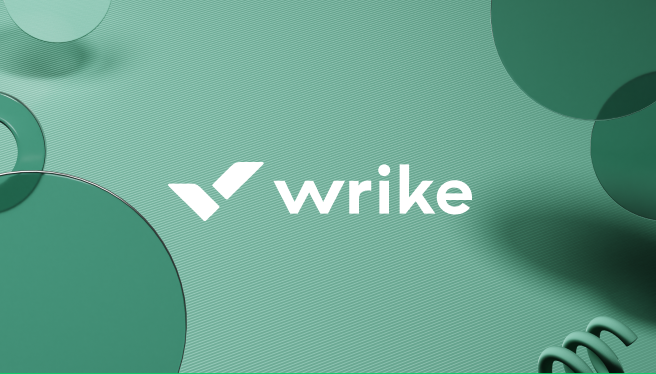With so many productivity books around and so many authors proclaiming themselves productivity experts, it's rare to find a book that dishes out really useful advice and inspires you to change for the better.
The book Manage Your Day-to-Day: Build Your Routine, Find Your Focus, and Sharpen Your Creative Mind (The 99U Book Series) is a collection of essays written by an array of thought leaders and productivity authors. Each section is a treasure trove of wisdom written as short, easily digestible blog posts (they all originally appeared as posts on 99U's website) or brief Q&A interviews. The book allows you to pick and choose topics that interest you, so there's no need to read it in chronological order — just pick a section and go.
Note that this book was published in 2013, which may put off those of you looking for the latest greatest self-help tome. But trust me: the productivity tips and strategies laid out here are timeless. And the benefits are priceless for anyone willing to work more meaningfully in this world of information overload and constant distraction.
Here are the top 5 productivity tips I feel are the most helpful from the massive amount of advice the book gives you:
1. Productivity Happens First Thing
Both Mark McGuinness and Tony Schwartz suggest you do the most important things — the activities that add the most long-term value — during the first part of your work day. The first 60-90 minutes is especially crucial as this is when your energy is high and your mind fresh. Do all reactive work second, when your creative energy has been depleted and the ideas aren't flying as quickly.
In my work as a copywriter, this translates to writing new articles in the morning and going through the editing jobs assigned to me in the afternoon. But if you're a nocturnal musician this might mean writing songs when you wake up at noon and answering email in the evenings.
2. Use Progression Markers to Display Productivity
Dan Ariely presents the idea of using progression markers to list work that's been done. Especially for knowledge work where there is rarely any tangible evidence that you've done much, keeping a daily log or past iterations of your work is a great way to track all the tasks you've completed. A similar idea is the Anti-ToDo List, or what one of our readers calls his Ta Da List, where instead of listing todos, you list everything you got done that day.
3. Alternate Connecting and Unplugging
Scott Belsky passionately advocates for balancing your life between being connected or "plugged in" to the deluge of information — our work emails, our Twitter stream, our Wrike notifications — and unplugging in order to be "more present." These windows of non-stimulation allow us to think, digest, plan, and create. It may sound fairly logical on the surface, but any modern knowledge worker knows how easy it is to lose yourself in the addiction to constant alerts, pings, and updates.
This is why Cal Newport suggests you defend your creative time by blocking it out on your calendar just like a meeting. People are less likely to disturb you if you're booked, and you carve out a productive time for yourself.
4. Be Conscientious About Tech Habits
Linda Stone argues that information overload isn't due to the availability of information. It's our fault for over-consuming! This overconsumption is leading to a host of very real, very physical effects: sedentary lifestyles, chronic stress, overconsumption of food, even screen apnea — the temporary cessation of breath when in front of a screen. We have to be conscious of the physiology of technology so that it doesn't negatively impact our bodies and our ability to be productive. And we have to work at being more active away from all our various screens.
In a similar vein, James Victore says we're losing the capability to distinguish between urgent and important. By prioritizing all the external pings of unread emails or Facebook messages, we are choosing others' needs over our own. Plus we're leashing ourselves to our electronic devices, always at their beck and call. The solution is really to take ownership of our time and to better choose where we direct our attention.
5. Engage in "Unnecessary Creation"
Possibly the most important tip of these five, Todd Henry advises that we engage in "unnecessary creation" — personal time to explore possibilities, accomplish side projects, learn new skills, and pursue experiments for the sake of self-expression. This isn't a suggestion either. It's a serious requirement for all knowledge workers and those who depend on creativity for their livelihood. Why? It allows you to find your voice and develop yourself. It also allows you to do risky projects that may not have an avenue within your workplace. And it fills up your well of creative energy so you can face your daily work tasks with renewed vigor.
Start by writing "morning pages"— three pages of handwritten, stream-of-consciousness style journalling upon waking up. This technique, developed by writer and creativity coach Julia Cameron, allows you to do a brain dump and clear your mind of all its concerns so you can face the day fresh. It also allows you to play with new ideas.
A good next step is to block out time on your calendar for quiet, creative time where you can engage in some unnecessary creation.
What's on Your Reading List?
Have you read any inspiring books on creativity and productivity recently? Tell us about it in the comments.
Read next: 44 Productivity Hacks to Turn Procrastination Into Action How to Increase Productivity at Work: 6 Mind-Switching Hacks Creative Block? 5 Surprising Ways to Spark Creativity




